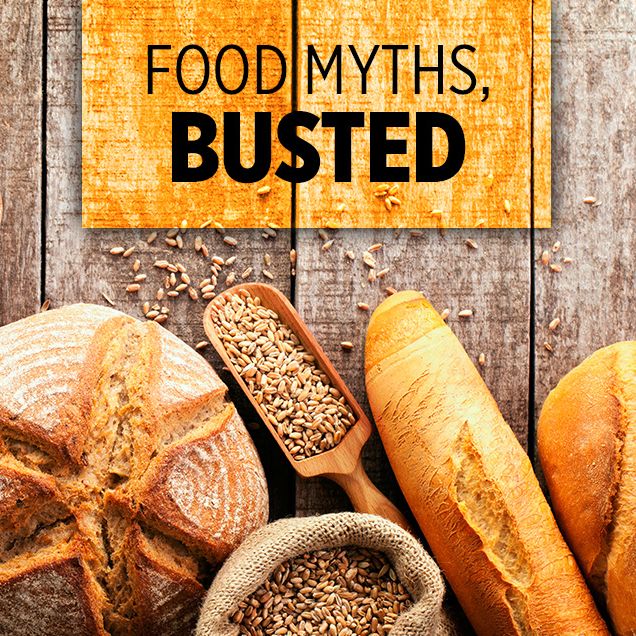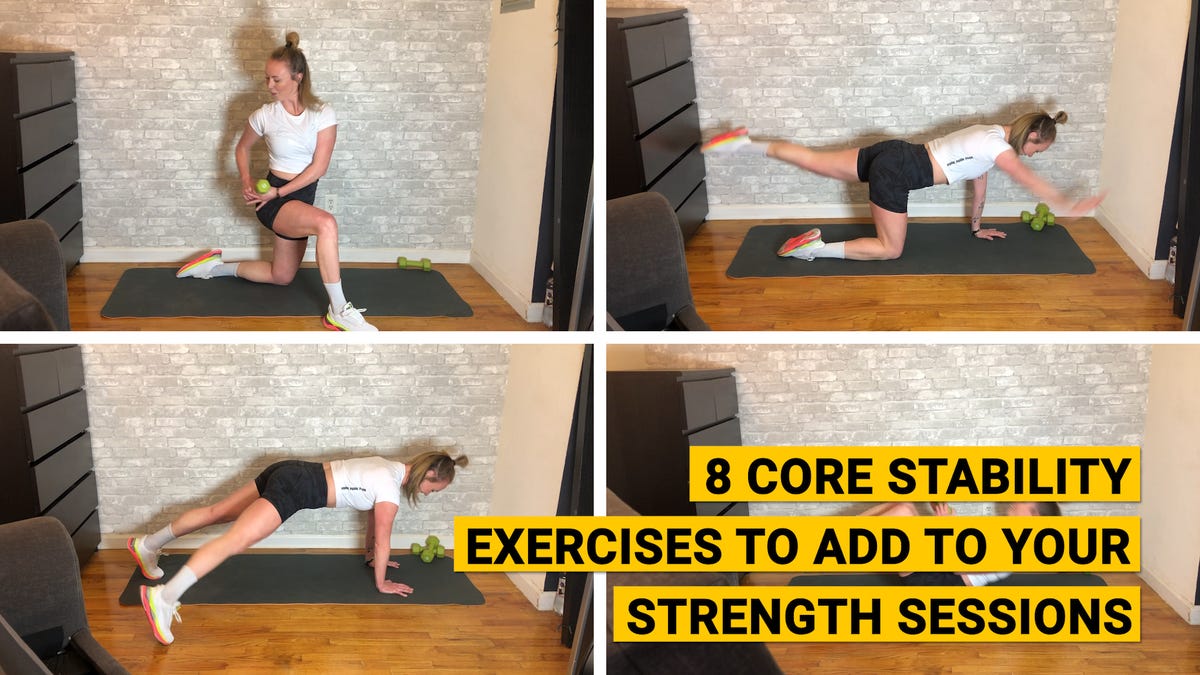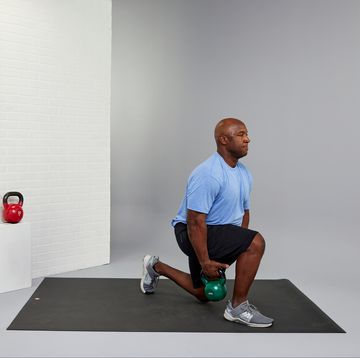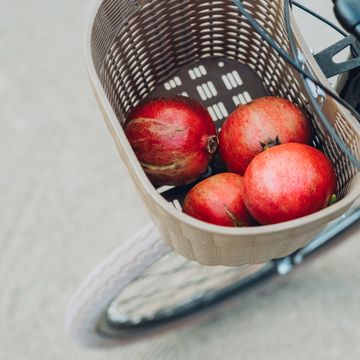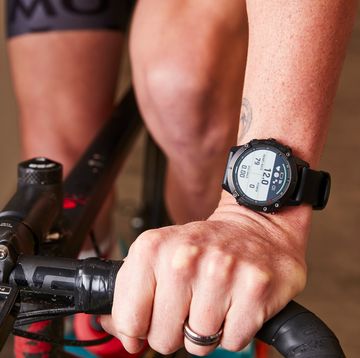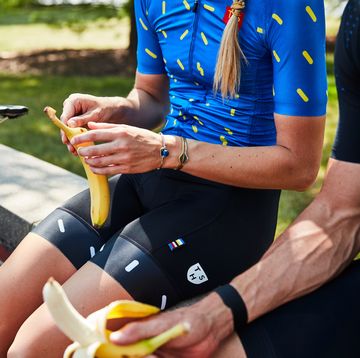We’re just going to say it: There’s a lot of B.S. out there when it comes to health and nutrition advice. That’s why we asked top nutritionists and dietitians to set the record straight. Here are some of the most common nutrition and food myths out there—and why you shouldn’t give them the time of day.
RELATED: What Nutritionists Eat To De-Bloat All Day Long
Myth #1: Eating at night is bad for you.
Before you lock your kitchen at 8 p.m, know this: Eating before bed isn’t what causes weight gain. “It all comes down to simple mathematics,” says Ilyse Schapiro, R.D., author of Should I Scoop Out My Bagel? “If your body’s used more energy (calories) than it’s stored that day, a snack before bed is not a bad thing at all and can even help stabilize your blood sugar levels.”
Telling yourself not to eat after a certain time will only lead to feelings of deprivation, she says. Try cutting back on snacking at least one hour before you slip under the sheets to prevent restless sleep and acid reflux, which can occur when your body isn’t able to properly digest food.
Myth #2: Gluten-free food is always better for you.
If you have a gluten intolerance or celiac disease, you should definitely go g-free. But don’t just jump on the bandwagon for the sake of staying on-trend. “One of the biggest issues I’ve seen in recent years is people trading in cookies and pasta for gluten-free options thinking they're doing themselves a huge favor,” says Isabel Smith, R.D., a New York City-based celebrity dietitian and fitness expert.
“In many cases, gluten-free products contain way more garbage than the gluten-containing ones do.” And you’re certainly not saving in the price department, either. “Gluten-free products are often much more expensive and usually also higher in calories, sugar and fat,” says Elizabeth Shaw, R.D.N., a San Diego-based dietitian. There’s nothing wrong with healthy whole grains like quinoa, amaranth, brown rice, barley, and bulgur. “They contain a plethora of minerals and nutrients like iron, zinc, and calcium, and are minimally processed,” says Smith.
RELATED: Is Gluten Bad For Your Body?
Myth #3: Carbs are the enemy.
Believe it or not, our bodies need carbs to function—especially if you maintain an active lifestyle. “Our muscles and tissues need carbs for muscle building, weight loss, and for daily functioning,” says Smith. And while certain diets tout cutting carbs to shed weight fast, you’re often losing water weight as opposed to shedding body fat, says Edwina Clark, R.D., nutritionist and head of nutrition and wellness at Yummly. But before you indulge in a giant bowl of pasta, know that moderation is key. Instead of crackers, breads and pasta, choose more nutrient-rich carbs like quinoa, wheat berries, sprouted grains sweet potatoes, yams, and butternut squash. “These foods ensure that you’re getting your daily fill of nutrients along with a boost in energy,” Smith says.
RELATED: The Best Carbs For Weight Loss
Myth #4: Frozen veggies aren’t as good as fresh.
Not so fast. In some cases (many actually), frozen vegetables provide even more nutrition than fresh veggies. “Frozen vegetables tend to be richer in nutrients because they’re more likely to be picked at their height of ripeness, whereas fresh veggies are picked before ripeness and then sent to the grocery store to further ripen before being purchased,” says Smith. Just choose frozen veggies that are free of added ingredients like butter and salt.
Myth #5: Fruit smoothies are always a great choice.
Warning: Many store-bought smoothies contain tons of sugar. “People love smoothies because you can cram so many ingredients and drink it all down in one sitting,” says Schapiro. “But the problem is that those ingredients add up...Before you know it, what you thought was a nutrient-packed meal or snack now has as much calories as a burger—and a whole lot more sugar.” If you’re craving something sweet, buy whole fruit. You’ll feel fuller and it won’t break the calorie bank.
RELATED: 7 Signs You're Totally Addicted to Sugar
Myth #6: Eating fat will make you fat.
Repeat after us: The healthy fats found in avocados, nuts, some oils, seeds and fatty fish are nothing to be afraid of. “Some people gawk when they read the nutrition labels for certain foods high in natural fat, like nuts, for example,” says Shaw. “But they’re a great source of protein and fiber, and will keep your hunger at bay for much longer periods of time than chips or crackers, which may be lower in calories.”
Instead, skip foods that are labeled “fat free.” They’re often loaded with artificial ingredients and sweeteners. “Instead, make more natural choices, like choosing a lemon and olive oil dressing for salad, as opposed to a fat-free processed one,” says Smith. You’ll get more nutrients and likely feel more satisfied, too.
Myth #7: Skim milk is a dieter's best friend.
If you secretly prefer whole milk to skim in your coffee, that’s not a bad thing. “In fact, the fat in whole milk may even promote fullness and serve as a better vehicle for fat soluble vitamins such as vitamins A and D compared to low-fat and fat-free dairy products,” says Clark. Just remember: A little goes a long way.
This article originally appeared on Women's Health.
Jenn Sinrich is an experienced writer, digital and social editor, and content strategist covering health, fitness, beauty, and relationships. After a decade-long career in New York City working in the magazine industry and at a myriad of digital publications, Jenn returned to her hometown just north of Boston to pursue freelancing full-time.
